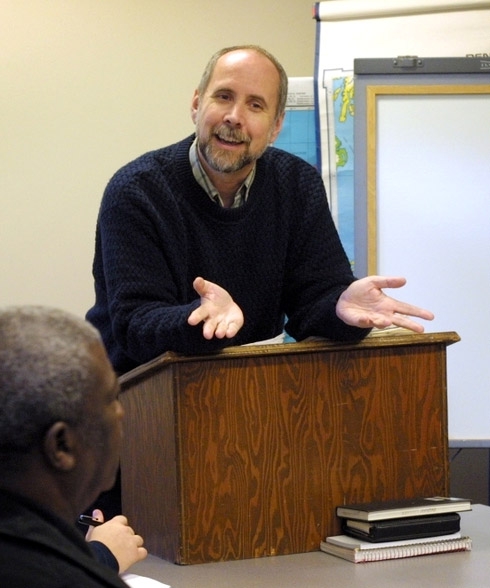"Au vaillant coeur, rien impossible!"
: This work is licensed under a Creative Commons Attribution-NonCommercial-NoDerivatives 3.0 License. Please contact [email protected] to use this work in a way not covered by the license.
For more information, read Michigan Publishing's access and usage policy.
Ronald S. Love, a distinguished scholar of early modern France and French colonialism in South Asia, died suddenly on 7 February 2008 at his home in Carrollton, Georgia. For many of us in the Western Society for French History, this was the loss of a friend as well as a fellow historian.
Ron was born in Calgary and received his bachelor's degree in history with honors, as well as a master's degree, at the University of Alberta. He earned a second M.A. and a Ph.D. in history at the University of Southern California. A student of George A. Rothrock and A. Lloyd Moote, Ron specialized in the history of early modern France. His first book, Blood and Religion: The Conscience of Henri IV, 1553–1593, analyzed the French king's conversion from Calvinism to Catholicism as a reflection of sincere religious conviction, rather than political opportunism or philosophical skepticism.
Ron's research interests then expanded to early modern French diplomatic missions and colonial enterprises in South Asia, as reflected in the 2003 publication of Distant Lands and Diverse Cultures: The French Experience in Asia, 1600–1700, co-edited with Glenn Ames, and a broader study of European expansion entitled Maritime Exploration in the Age of Discovery (2006). At the same time, he produced books on the history of the telecommunications industry in Saskatchewan and a study of the European Enlightenment. His articles and reviews appeared in the Canadian Journal of History, Sixteenth Century Journal, and Historical Reflections / Réflexions Historiques, among others. The recipient of research fellowships from the Izaak Walton Killam Foundation, the Social Science Research Council of Canada, and the Phi Beta Kappa Society, Ron was an energetic and accomplished scholar of many fields and topics.
Ron was also a dedicated teacher who instructed and inspired his students in history courses ranging from the medieval period to the modern, from Hong Kong to Paris. After holding teaching appointments at U.S.C., El Camino College, and the University of Saskatchewan, he joined the Department of History at the University of West Georgia. There he attained the rank of full professor, and he received several teaching awards. In addition to his regular teaching and advising responsibilities, Ron mentored numerous undergraduates and graduate students. His commitment to student excellence extended beyond the classroom: He became faculty advisor to the Phi Alpha Theta chapter at U.W.G. and served on Phi Alpha Theta's National Executive Committee. He led the development of a Certificate Program in Canadian Studies for the University of Georgia system, founded the Southern Association for Canadian Studies, evaluated grant applications in European history for the National Endowment for the Humanities, and served as a Faculty Consultant for the Advanced Placement Exam in European History for many years. Amid the demands that faculty members typically face at their home institutions, Ron always found time to be of service to his students, colleagues, and the profession.
I spoke with Ron many times about the rewards and challenges of being an academic historian and of teaching in particular. He had very high expectations of his students―but he always stood ready to help them meet those expectations. Above all, he wanted students to develop their own capabilities and to become the professionals he knew they could be. His appreciation for literature, art, and dance enriched his instruction. For Ron, teaching history was an extension of experiencing the variety, color, and excitement of life, whether lived in the past or the present.
Our conversations usually occurred at annual meetings of the Western Society for French History, which Ron attended regularly for twenty years. Indeed, Ron was a leader of the WSFH: He served many terms on its Governing Council and as its President in 1999–2000. He gave numerous papers, provided comments, and chaired sessions. Those of us who heard his presentations remember his insightful analyses, not to mention his rapid-fire delivery. Above all, Ron embodied the WSFH's dedication to welcoming graduate students and junior scholars into the academic profession and into a community of people who share an interest in French and Francophone history.
Like many of Ron's friends, colleagues, and students, I benefited from his wide-ranging knowledge and interests. I enjoyed his skills as a raconteur―he knew how to tell a story with humor and panache. His publications and accomplishments are impressive; among academic historians, these are often seen as the surest way to establish a reputation or to leave a legacy. But I believe that Ron's personal, spirited response to all challenges―"au vaillant coeur, rien impossible!"―will also be cherished and missed by all who knew him.



